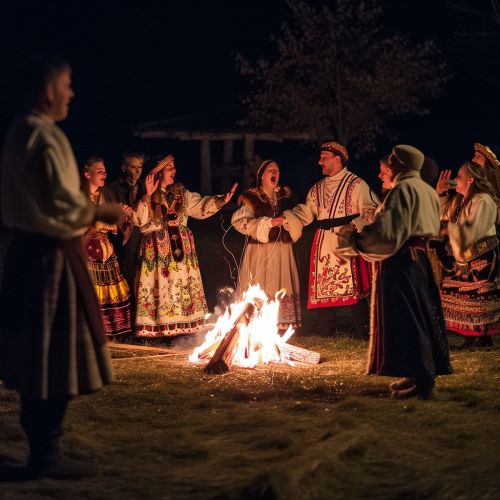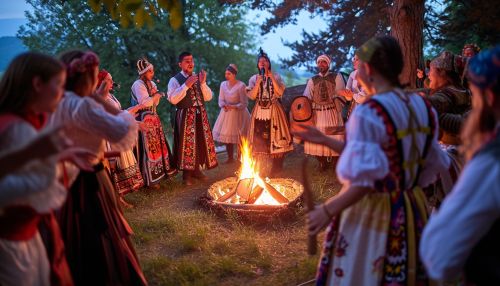Koliada
Origins and History
The tradition of Koliada has its roots in the pre-Christian era, and it is believed to have originated from the ancient Slavic pagan rituals. The term "Koliada" is derived from the name of the Slavic goddess Koliada, who was associated with the winter solstice. The festival of Koliada was celebrated to honor the goddess and to mark the end of the old year and the beginning of the new one.


The Koliada festival was a significant event in the Slavic pagan calendar, and it was characterized by various rituals and customs. These included singing Koliada songs, performing traditional dances, and making offerings to the goddess Koliada. The festival was also associated with the belief in the rebirth of the sun and the renewal of life.
Koliada in Christian Tradition
With the advent of Christianity, the Koliada festival was incorporated into the Christian calendar and became associated with the celebration of Christmas. The Christianized version of Koliada retained many of the original pagan customs, but they were given new meanings and interpretations in the context of Christian beliefs.
In the Christian tradition, Koliada is celebrated on Christmas Eve, and it involves a group of carolers going from house to house, singing Koliada songs and wishing the householders good luck and prosperity in the coming year. The carolers are usually rewarded with gifts or treats, and in some regions, they also perform short plays or skits known as "vertep".
Koliada Songs
The songs sung during Koliada are known as Koliada songs or Koliadki. These songs are a unique genre of Slavic folk music, and they have been passed down through generations. The lyrics of Koliada songs are often related to agricultural themes, reflecting the agrarian nature of ancient Slavic societies.
Koliada songs are characterized by their distinctive melodic and rhythmic patterns, and they often involve the use of traditional musical instruments such as the gusli, a type of Slavic psaltery, and the svirel, a type of Slavic flute.
Koliada Customs and Rituals
The customs and rituals associated with Koliada vary from region to region, but they generally involve a combination of singing, dancing, and feasting. In some regions, the Koliada celebrations also include the making of a Koliada wreath, which is decorated with evergreen branches, ribbons, and other ornaments, and is carried by the carolers as they go from house to house.
Another common custom is the Koliada procession, which involves a group of people dressed in traditional costumes, carrying torches or lanterns, and parading through the streets. The procession is usually led by a person dressed as the "Koliada King" or "Koliada Queen", who is considered to be the embodiment of the goddess Koliada.
Koliada in Modern Times
In modern times, Koliada is still celebrated in many Slavic countries, including Russia, Ukraine, Belarus, and Poland. The festival has also been recognized by UNESCO as an intangible cultural heritage of humanity.
While the religious significance of Koliada has diminished in contemporary society, the festival continues to be a popular cultural event, and it is often associated with national identity and cultural preservation. Many communities organize Koliada festivals and events, featuring traditional music, dance, and food, and these events attract both locals and tourists.
